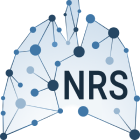Anti-inflammatory effects of targeted lung denervation in patients with COPD
To the Editor:
Acetylcholine is the primary parasympathetic neurotransmitter in the airways and induces bronchoconstriction via binding with M3 receptors. Cholinergic tone is increased in patients with chronic obstructive pulmonary disease (COPD) and this is the major reversible component of airflow obstruction in the disease [1]. Accordingly, treatment with anticholinergics is an effective bronchodilator therapy for patients with COPD [2]. Recent evidence from animal models of COPD revealed that acetylcholine also promotes airway inflammation and remodelling, which can be inhibited by anticholinergic intervention [3]. Such an anti-inflammatory effect of anticholinergic intervention could be clinically relevant. It has not been previously demonstrated in patients with COPD.

